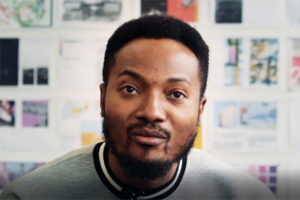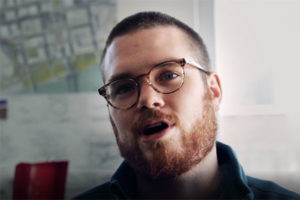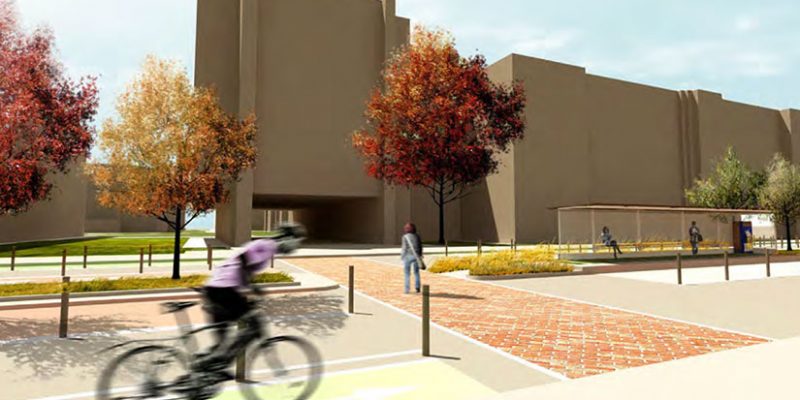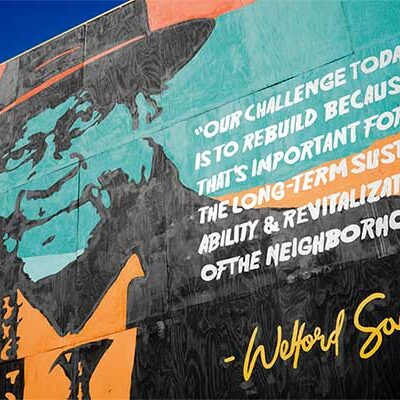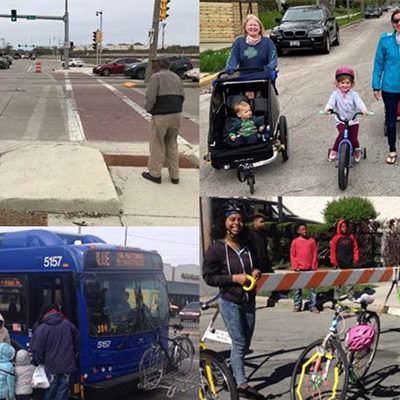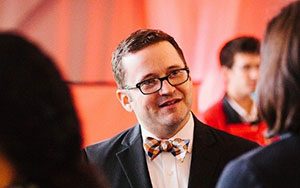
President & CEO
Partners Advancing Values in Education (PAVE)
Milwaukee, WI
Master of Urban Planning, 2004
After receiving my bachelor’s degree in Political Science from UW Madison in 2000, I was looking for a career path where I could make a meaningful difference in solving some of our society’s greatest problems. I wasn’t sure what career path that would be, but I knew that working in politics was not for me. Eventually, I found planning, and the UWM program in particular, and was immediately impressed with the impact that SARUP’s faculty had on the community outside of the ivory tower. As a graduate student, I felt fortunate to be a part of this impact. The most important learning that happened in graduate school was not in the classroom, but out in the field, helping solve real world problems in the fascinating, often challenging, but never boring environment of Milwaukee.
What impact do you, as an Urban Planner, have on your community?
PAVE is a non-profit organization whose mission is to make excellent educational opportunities possible for families in Milwaukee. We fulfill this mission by working to improve the organizational capacity of the 42 independent schools in our network. Our schools are in the city of Milwaukee and serve low-income families. The quality of public education in Milwaukee is a critical issue in retaining and attracting residents and businesses, and we have an ethical responsibility to be sure all Milwaukee children get a good education.
What does your typical day look like?
Working in partnership with my board of directors, I set the strategic direction of the organization and implement programming to achieve our goals. I am responsible for hiring and leading a team of professionals who make our mission real in the schools they serve. I raise significant resources from foundations and community members to sustain our organization. While my career path hasn’t taken the traditional route of most urban planners, I draw upon the skills I learned and experiences I had at SARUP every day to do my job. Urban planning is ultimately about using data and systematic thinking to tackle problems, and my job is essentially problem solving. Relying on the discipline I gained in grad school, I work to problem solve both within my own organization and among the schools in our network, all toward the larger mission of positively impacting K-12 education in our city.
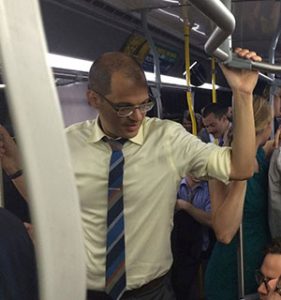
City of Milwaukee
Department of City Development
Milwaukee, WI
Master of Urban Planning, 2009
Master of Public Administration, 2009
I enrolled in the graduate program at UWM because I knew I wanted to work in local government here in my hometown. I didn’t know exactly what that would look like but guessed correctly that with its commitment to engaging in local issues, UWM would help me develop the skills and best position me to take on whatever challenging roles came my way.
What impact do you, as an Urban Planner, have on your community?
Working for DCD allows me to be involved in a wide variety of projects that all have the goal of improving City neighborhoods and increasing economic opportunities for all Milwaukee residents. The work we do in City government is directly linked to quality of life for our residents and working in local government provides a unique opportunity to have a positive impact on the community.
What does your typical day look like?
I manage our long range planning team, responsible for a variety of strategic planning projects and studies, including developing neighborhood and commercial corridor strategic action plans, and supporting the implementation of “Growing Prosperity,” Milwaukee’s economic growth plan. There is an immense personal satisfaction from being involved in projects or initiatives where government “gets it right” and positive change follows. For me, this has included being involved in launching the City of Milwaukee’s signature summer youth jobs program that has since provided a “first job” for more than 25,000 Milwaukee youth, helping develop the City’s comprehensive response to the foreclosure crisis, competing for and deploying tens of millions of dollars of federal funds to create 1,000+ affordable housing units at formerly foreclosed or abandoned properties, and working to update our City’s comprehensive plan to reflect the evolving vision residents have for their neighborhoods.
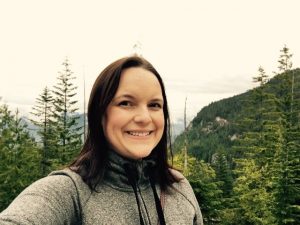
Field Supervisor
Franklin Energy
Seattle, WA
Master of Urban Planning, 2011
Master of Public Administration, 2011
A decade of city planning and energy efficiency management translates as valuable time spent making communities brighter. Most people, especially residents and business owners, are not savvy on how they are using energy to run their home or business. I’ve impacted over 1,000 customers by helping them understand and manage their energy usage through conservation and efficiency upgrades. Now I’m in a position of influencing a team of Energy Experts to provide great customer service and energy guidance, while at the same time reaching ambitious savings goals. I am incredibly fortunate to have an education and the experiences that I’ve had. Also, because of my concern about the footprint of a very resource-heavy industrialized nation, I need to do what I can to leave the planet better than how I found it. An effective way to reduce greenhouse gas emissions to combat climate change is through energy efficiency and conservation. Therefore, I have a very important role in impacting communities in aspects from the air we breathe and the lowering of carbon pollution, to helping families and businesses save money.
What does your typical day look like?
I lead a team of residential field energy specialists that equip customers with tools and knowledge to save energy dollars. As an Energy Advisor, I’ve consulted over 450 business customers and about 1,000 residential customers to help influence positive behavior changes and decision making surrounding energy efficiency. Additionally, I’ve been fortunate to perform energy assessments on the Milwaukee Art Museum, Grand Avenue Mall, and various manufacturing facilities, and have provided assistance to mom and pop businesses throughout Southeastern Wisconsin.
What advice do you have to pass on to new Masters of Urban Planning students?
Critical thinking, data analysis, project management, collaboration and facilitation are several of the skills that I apply daily that were developed in my MUP classes. If you have a Masters degree in urban planning from UW-Milwaukee, the limits are endless. The project-based classes using real life challenges and actual clients to create solutions gave me strong footing in my career that applies in many fields in this global economy. Also, the public speaking practice in MUP classes has greatly helped in my career. My advice for students is to be adaptable, look at challenges positively, and use your computer and collaboration skills to create efficiencies and improve the benefit to the end-user. About 10 years ago, I improved the zoning application process by adding forms on the city website, and now I work with computer programmers to launch and continually improve our internal and external software applications. If you don’t have the capability to make improvements in your current role, look for a team that encourages this. Also, talk to the customers/citizens that you are serving, ask probing questions, and be open to new ideas. My urban planning education taught me how to be a conduit and problem solver between stakeholders ranging from interested parties, introverted engineers, to folks who can’t pay their energy bills.
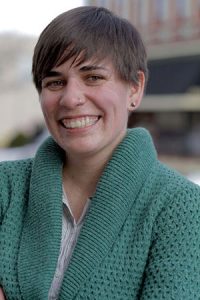
Active Living Program Manager
Health by Design
Indianapolis, IN
Master of Urban Planning, 2013
When I started graduate school, I thought I would be working in the public sector as a bike and pedestrian planner. I did that for two years as the Active Transportation Planner for the City of Fort Wayne, Indiana. I realized rather quickly, however, that the public sector might not be the best environment for me. I was ready to take Fort Wayne forward for biking and walking, but making big changes can require political will, and Fort Wayne didn’t have it. Every city is different in terms of the work you’re able to accomplish, but I was feeling very stuck and unable to use the knowledge and skills I acquired in school. I had worked for the Wisconsin Bike Fed during school and for a short while after, so I thought a return to advocacy would be a better fit for me, and so far it has been.
What impact do you, as an Urban Planner, have on your community?
My community is the State of Indiana. Like many states, Indiana struggles with obesity and its resultant health issues. Cities all over the state are looking for solutions to this and many other issues that have been caused, in part, by investing in car-only transportation. The workshops I run help to bring together organizations and individuals that don’t typically work together, such as hospitals and city government, to work towards a common goal.
What does your typical day look like?
Through partnerships with the Indiana State Department of Health and Purdue Extension, we run Active Living Workshops around the state. With a team of planners and health educators, we provide full-day workshops to teach participants about the connection between health and the built environment. Our goal is to create healthy behaviors by creating policies, plans, and programs that support active lifestyles. I write a summary report for each workshop, and also provide technical assistance and resources for the community priorities. Communities then produce an Action Plan based on the report. I also lead the Indiana Complete Streets Coalition, a group of individuals and organizations working to pass Complete Streets policies throughout the state. I provide resources and technical assistance for policy adoption and implementation at a local level.
Master of Urban Planning, 2019
Master of Urban Planning, 2019
